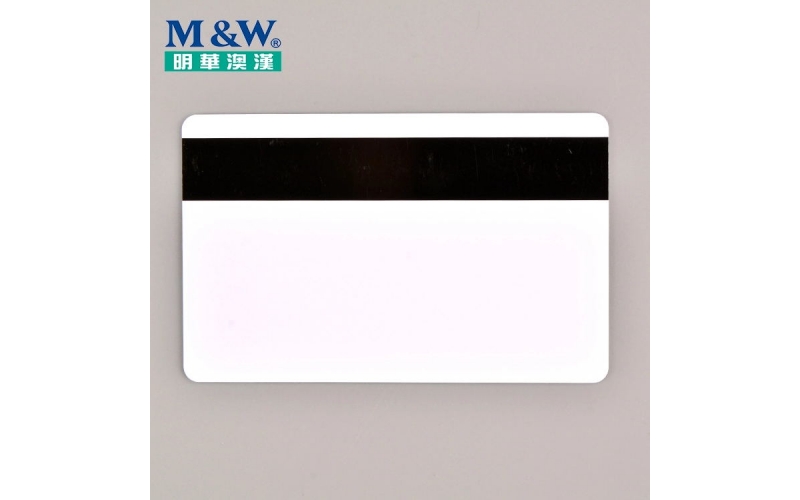Jcop J3H145/J2A080/J3A081/J3H081/J3D081 JAVA smart card
This JavaCard 3.0.1 Classic implementation by NXP is the brand new dual-interface (contact/contactless) edition of JCOP.
Brand new generation of popular JCOP cards! Arrived just now. JAVA based JCOP2.4.1, JC2.2.2, GP2.1.1, T=1, SCP02
Cards come white, blank. We can print them with your logo or other artwork.
Many applications but specially suited for processor and security intensive ones loke banking, credit cards, personal ID cards, documents... 2/3 track HiCo mag stripe available.
Chip is made in Germany. Card is made in china, M&W company.
MW JAVA CARD is based on the JAVA card platfrom TGP2.1.1, The Java Crad Operating Platfrom is a comprehensive operating system for smart cards working off the Java platfrom. The technology is used in a variety of industries.
MW JAVA CARD is best choice for the customers looking for a security and versatile card operating system. Java programming tools provide a fast provide a fast and reliable way to develop new smart card solution.
MW JAVA CARD is available for contact, contactless and dual interface amart cards. Contact and dual interface smart vards are very popular and hot-selling. We can write ATR value for customer in the factory.
The Core of you application
Global Platform/Java Card use word-wide for Banking, Mobile Transactiongs, Secure identity(e.g.:ePassport, National ID Cards, Digital Signature Applictions, Heath Card,Driving Licenes),Transportation and various other applications
Unique Platform Design
Highest security and certification standards: CC EAL5+, EMVCo Platform, CAST, RISK, etc.
Generic MW JAVA CARD are delivered without Applets, -These products can be customized by downloading Applets to the EEPROM or FLASH by the customer to adopt them for any application/market.
Many big memory for choice : 32KB,36KB,40KB,72KB,80KB,144KB.
| MW JAVA CARD - General version | |
| Standards | JC2.2.2(and JCS.O.1 for ECC algos) GP2.1.1(with SCPO1 and SCPO2) |
| Cryptographic algos | Symmetric: 3DES(ECB,CBC), AES(128, 192, 256) Hash:SHA-1,SHA-224,SHA-256,SHA-384,SHA-512 RSA: up to RSA 2048 bits Elliptic curves: P-224,P-256,P-384,P-521 bits On-card asymmetric key pair generation |
| Communication protocois | T=0,T=1,PPS,with baud rate up to 230 Kbps |
| Other OS features | PK-based DAP(to control the applets that can be loaded on the card) Deledated Management Support of Ectended Length APDU Muitiple logical Channels Real Garbage collector(memory space can be recovered after individual abject deletion) |
| applets(optional) | |
| MPCOS | E-purse & secure data management application |
| OATH OTP | One Time Password application |
| Chip characteristics | |
| Technology | 32k/36k/72k/80k EEPROM area Embedded crypto engine for symmetric and asymmetric crytography |
| Life time | Minimum 500,000 write/erase cycle Data retention minimun 25 years |
| Certifisation | cc EAL5+ |
| Security | |
The product includes multiple hardware and software countermeasures against various attacks: side channel attacks, invasive attacks, advanced fault attacks and other types of attacks. | |
| Application | |
| • E-payment •Transport •Menbership & Loyaity • Government ID | |
Any further query, Contact your M&W sales for details. | |
RFID Java Card v3.0.1 Classic, Contactless, 80K EERPOM, Desfire emulation. Contactless Interface(CL).
This product is targeted at the convergence of e-govemment, banking, and transport applications, reducing cost of development.
| Specification & Features | |
| Java Card version | 3.0.1 Classic |
| GlobalPlatform | 2.2 |
| GP Secure Channel Protocol | SCP 01/02/03 |
| Delegated managerment | Yes |
| Secure box | Yes |
| Memory Size And Technology | |
| EEPROM | 80 KByte |
| CMOS technology | CMOS 14 |
| Option | DES-Fire EV1.8K |
| BAC(20 KByte read) | Request NDA |
| EAC(20 KByte read) | Request NDA |
| MasterCard PayPass M/Chip4(Performance comparison) | Request NDA |
| Gryptography | |
| DES/Tdes | 56/112/168 bit |
| AES | 256 bit |
| RSA | 2048 bit |
| ECC GF(p) | 320 bit |
| SHA | SHA-1/2 |
| Certifications and approvals | |
| EMVco hardware approval | Yes |
| EMVCo platform approval | Yes |
| VISA approvals | Yes |
| MasterCard PIC(TAS & CAST) | Yes |
| Common Criteria (VAN5) | EAL 5+(4+ with DESFire option) |
Applets availbble (project based):
PKI / Digital Singature
Basic Access Control(BAC) and Extended Access Control(EAC) BAC / EAC 1.11 EAC 2.03 / Supplementary Access Control (SAC)
GeID nPA
National ID
International Driving License
European Health Insurance Card
Vehicle Registration
FingerOrint Match on Card
Ruropean Citizen Card(Base and French Profile)
One Tine Password
Packaging Details : 100/200 pcs in a box. | 100pcs box size: 4.7"x3.8"x 2.4" |
| 200pcs box size: 8.9"x3.8"x 2.32" | |
| 1000pcs/ctn, size: 12.9"x9.3"x 4.7" | |
| 2000pcs/ctn, size: 12.9"x9.3"x 9.7" | |
| 3000pcs/ctn, size: 12.9"x12.6"x 9.7" | |
| Weight of standard card(for reference): | 6.5kg / 1000 pieces. |
| Port: | Shenzhen |
| Lead Time : | 1-3days, according to you order quantities |





